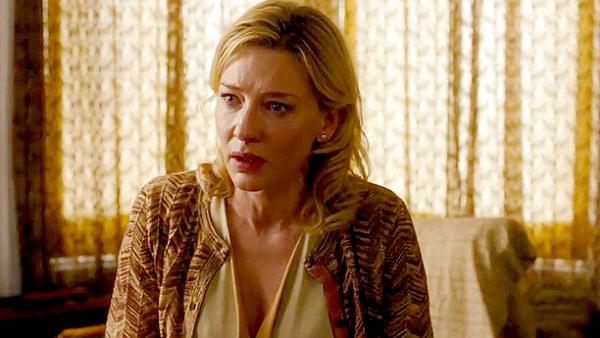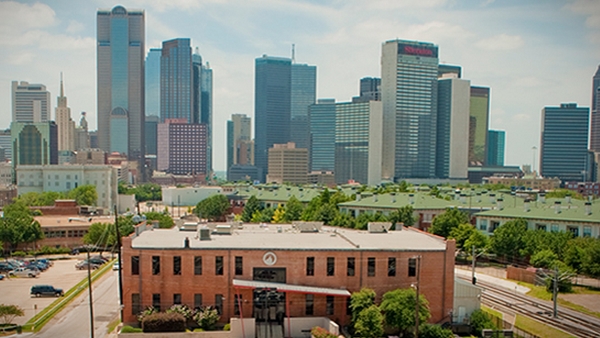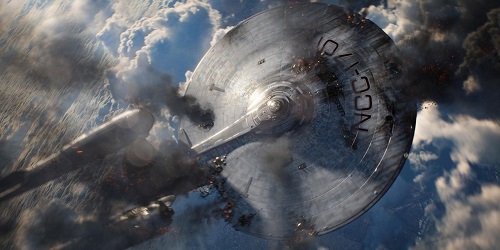
We’re a seasonal group here at Go, See, Talk!– one only need go back a month to our Halloween tournament for proof!– and so in the spirit of Turkey Day and giving thanks, we all got together and hand-picked one director, movie, and actor or actress apiece who we’re thankful for. If you know us well enough, then some of these picks should seem right in line with our proclivities and tastes. Then again, maybe we’ll surprise you anyhow.
Bill Graham:
The director I’m most thankful for is Guillermo del Toro. He lives and breathes monsters, and every time his name is attached to something new, I get a surge of anticipation for what might appear on screen. He gave me Pan’s Labyrinth, for which I’m eternally grateful, and he is a master unlike any other. Oh, and he loves practical effects.
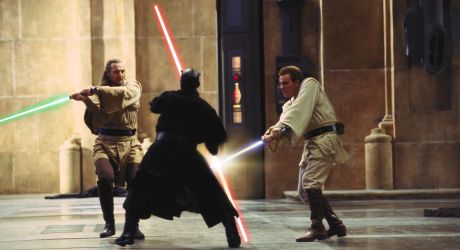
The movie I’m most thankful for is The Phantom Menace. Now, before you hunt me down, let me explain. I was there, with wild expectations, at 12 years old, waiting in line with everyone else on May of 1999. I came away with very mixed emotions, though at the time I leaned more towards liking it and now I lean the other way. But that film taught me three things:
- No matter how in love with a franchise and director/writer you are, none of those things is infallible. People were CRUSHED. Devastated.
- Everyone and their grandma digs lightsaber fights. Seriously. That might be one of the greatest cinematic treasures around. There’s beauty and the constant threat of death. Darth Maul with double-sided lightsabers? Mind blowing.
- “Duel of the Fates” still gives me goosebumps and to this day I am thrilled to even recall notes from that piece of score. It may be one of the only things that was done right for the entire prequel trilogy. Which has always stuck with me. For a piece of cinematic music to still enthrall me, even with my lack of enthusiasm for the film, is incredible. Yes, that piece is linked to the monster lightsaber duel, but that actually says something more. I had no idea, until that film, that a piece of score could outshine an entire film.
The actor I’m most thankful for is Jeff Bridges. Whether you like him as an actor or not, there’s an undeniable charm and vitality he brings to every role. He’s a free spirit in real life, and that comes across on screen. I haven’t seen all of his films because I’m not nearly that obsessive, but I’m thankful for The Dude, man.
Jessica Tomberlin:
There are so many things that make Woody Allen the director I am most thankful for: his diligence in bringing us new movies every year, how he’s not afraid to go against what the critics or fans desire, and the fact that he has, on numerous occasion, successfully overcome his natural inclination toward introversion, despite how terrifying that can feel.
I remember the first time I saw Annie Hall and realized that I wasn’t the only awkward, self-conscious and slightly insecure person on the planet. I felt Annie’s pain in that initial conversation with Alvy, and I’ve relived moments similar to that one more times than I care to admit. Woody is the master of capturing those real life, relatable moments of insecurity and self-doubt that we all have at some point in our lives. These moments help to remind me that being human means we’re all allowed a little imperfection, and that is definitely a reason to be thankful.
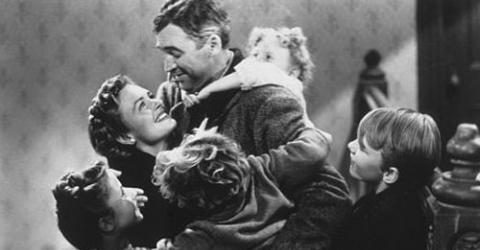
I am thankful for any movie that makes me think about, question, or understand life in some new or different way. It’s a Wonderful Life is the first film I remember making me feel this way. We watched it as a family one Christmas, and while I was too young to fully grasp the stories significance, it made me start to understand the way we are all connected and how our choices impact one another. To steal a line from Cloud Atlas, it showed me how “our lives are not our own.” It’s a film I’m not only thankful for, but also one that taught me how to be thankful.
The actor I am most thankful for is Audrey Hepburn. My Meme (she would probably roll over in her grave if I called her grandmother) first introduced me to Audrey when she rented My Fair Lady. I loved Audrey’s voice, the way she spoke, (before and after voice lessons), the way she sang, the way she walked, the way she danced; I loved absolutely everything about her, and I must have watched that film a thousand times before I let Meme return it to the video store. I’m sure there were subsequent late fees.
It’s hard to find talent like that anymore, and while I adore many of the actresses of Hollywood’s “Golden Age,” Audrey was my first.
Marc Ciafardini:
As of late, Hollywood and the film industry have presented themselves as two very strange animals. In all their attempts to move forward it’s clear that they are really just treading water offering wave after wave of remakes/reboots or stories we’ve seen over and over again painted and primped to look like a new idea. It’s that kind of lockstep assembly line production that puts the audience off and causes us to cry even louder for originality. However not all hope is lost. There are many artists and filmmakers out there who, with nearly every breath in their being, strive for new and inventive ways to tell a story (even if it’s one we know very well).
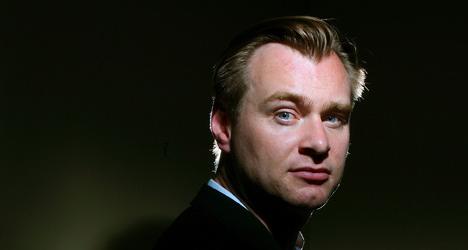
From that rare breed of filmmaker, I look to Christopher Nolan to take me away from the triteness and tedium that populates the mulitplexes. Memento, The Prestige, Inception, and yes, his Batman trilogy all are woven from a focused desire to make the best film possible with trades people who are at the top of their game. He hasn’t let us down yet and I doubt he ever will. That’s why at this time of year I’m thankful for him and his contributions to film.
Many modern films just can’t sit still for more than a minute or even a few seconds. They resort to quick cuts, rapid fire editing and a frenetic pace to at best keep our interest or worse attempt to mask poor storytelling. These cuts and transitions (even without shaky cam footage) can be enough to make fighter pilots lose their lunch. So when I need an almost mandatory annual palette cleansing, I find solace in and am extremely thankful for Rocky. Laugh if you will but there’s a film that takes the slow boat with momentum that is built up continually to a rousing ending that feels earned rather than thrust upon us.
The music of Bill Conti, the training montage cinematography, the fight choreography, the frankness and tangibility of Stallone’s “everyman” delivery, the inspiring tale of the underdog getting his shot, the list goes on and on of why I love it and Rocky just gives and gives and gives. It just cements the idea that it takes time to tell a story. Frankly it’s tough not to be thankful for something this special, even if it spawned lots of poor imitations and parodies. That just shows the longevity it has and how great of a film it is.
Mark Strong is still not a household name, yet, but I bet you’ve seen him in all sorts of films only probably realize who he was. He doesn’t take center stage but as a character actor (a very underrated profession by the way) he shines like few others. Strong has the chops to stand toe to toe with any actor on the planet. He can have a big laugh at himself but also dial in and give the most focused performance the world has ever seen. In the past decade he’s blazed a meteoric path through his career giving us notable turns in Ridley Scott’s Body of Lies, Danny Boyle’s Sunshine, Matthew Vaughn’s Kick Ass, Guy Ritchie’s Sherlock Holmes (and Rocknrolla) to name a few titles. Personally I can’t get enough of him and while he might lose that charm and appeal taking on a lead role, he may also knock it out of the park. One thing is certain about Mark Strong in a film; you know he’ll impress the hell out of you. The only uncertainty is how many times and in what role.
Andrew Crump:
I have long held an affinity for Italian film, coupled with an admiration of Italian filmmakers; it’s a heritage thing, a point of pride I draw from my own diluted Italian ancestry, and I don’t know that my feelings on the cinema of Italy would be quite so strong if not for Federico Fellini. While the first major Italian film I ever saw happened to be Cinema Paradiso, Giuseppe Tornatore’s expansive celluloid tome about an Italian filmmaker reconciling with his past, it wasn’t until I saw Fellini’s 8½ that I truly became hooked by Italian film– and, of course, the remainder of Fellini’s oeuvre. 8½ opened up a whole new dimension of film to me, one in which reality and fantasy perpetually blur together, while the maestro’s other works– La Strada, La Dolce Vita, and particularly I Vitteloni– all speak to the Italian experience, or numerous different Italian experiences, and capture them immaculately on film. It’s hard not to feel connected to the country when I watch Fellini filter Italy and Italian life through his lens.
There’s also something honest about each of his pictures, maybe not what you’d expect from a man who participated in constructing a lexicon about his life and career titled I’m a Born Liar. His films are always human, even his most surreal ones. They often allude to details and whispers from his childhood, though he would at times deny this. And they’re frequently about emotional truths. Fellini may have been a difficult man to unravel, but even his most impenetrable his movies invite us to peer into his soul and into our own.

Ever since my Sophomore year in high school, The Iron Giant has served as a constant reminder to me that “animation” doesn’t necessarily equate with “children’s fare”. Not to say that Brad Bird’s celebrated picture doesn’t work as a children’s movie– it most certainly does– but there’s something remarkable about The Iron Giant, something basic and universal that doesn’t care about age brackets and reaches us no matter how young or old we are. That little special detail happens to be heart, of which the film possesses endless reserves; the story is simple, straightforward, right out of the pages of pulp sci-fi annals, but the pulse of earnest, powerful emotion that lies just under its surface still has what it takes today to reduce me to a choked-up, sniffling wreck of a man. And I’ll always be thankful for that.
Whether she’s on the sidelines, observing and wisecracking and making a scene, or in the fray, beating up bad guys with her own two hands, I’ll never stop being a fan of Anita Mui. She passed away almost a decade ago, and left this world far, far too soon by anyone’s standards, but she left behind incredible careers in both music and film. Most of us might recognize her from her role in Drunken Master 2 and Rumble in the Bronx— where she mostly fulfilled the duties of comic relief with the sort precise, sly, hammy skill she’s renowned for– but go further back and you’ll find gems like Rouge, filled with tragic irony, A Better Tomorrow 3, arguably the worst of the series but still packed with enough satisfying violence and Chow-yun Fat to justify its existence, and Heroic Trio, which makes for a refreshing change of pace from early attempts at establishing superhero cinema. Mui may have had a lot more to offer the world, but I appreciate and even adore the work she left behind.
